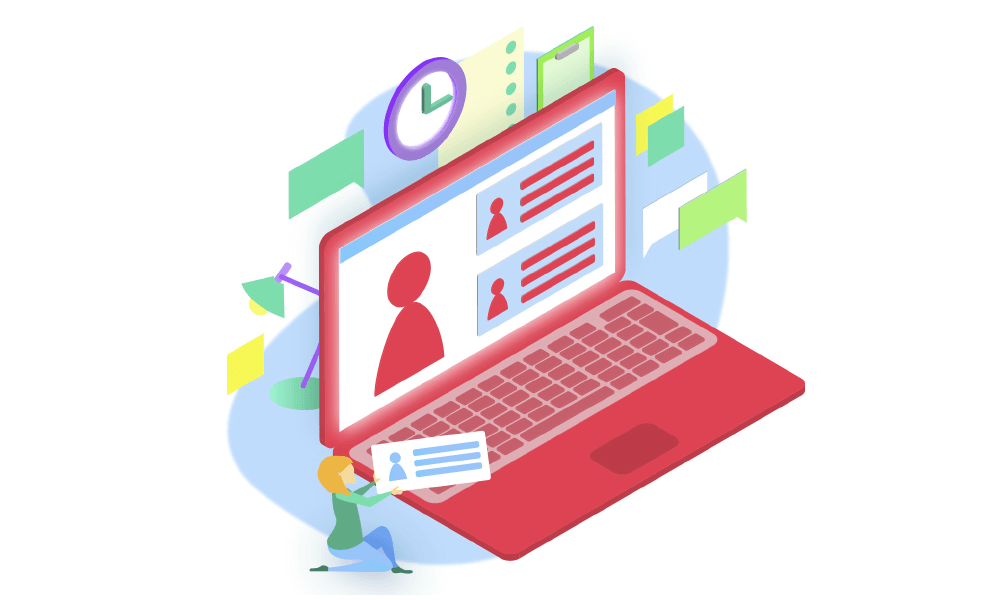Business is going global these days, and every company needs automation. You can’t handle each client personally. Often, different employees have to handle the same client over the course of his history with the company.
That creates a demand for keeping all the information about your clients in a database with easy access. Most small business websites can’t afford to create their own databases, so the demand results in dozens of services like that on the internet. The problem is, you can’t really make an informed choice when it comes to CRMs unless you’ve already worked with one.
Here’s what you have to consider when choosing a CRM if you want to avoid troubles with it in the future.
Customer interaction tools
There are just too many communication channels these days. Some clients will write you an email or call you, while others will only contact via Facebook.
You can’t possibly ask your employees to monitor all channels at once. If you do, you risk losing clients due to long response times.
That’s why having all communication channels in one CRM is crucial for your sales. Look for those that have all the tools your business needs. For instance, if you get a lot of people contacting you via Facebook, a Facebook Messenger integration is a must.
Customer interaction tracking
The CRM of your choice must have a great system of customer interaction tracking to make sure that every customer is handled with personal care. That’s important if your clients have multiple touchpoints before they join as a buyer.
It takes 6 to 8 touches for the lead to turn into a customer, and treating them with care during each touch makes sure they convert.
A good CRM would have all the chat history visible to an agent who talks to the lead in question, their concerns, goals, and experiences mapped out before them. If the CRM is worth its salt, it would also have the information the lead has submitted in forms on your website.
Once the agent has that kind of information before them, they can address the lead by name, and ask about the problems they’ve been discussing with your company earlier. That makes for outstanding customer experience and shows them you actually care.
Lead scoring system
It may be considered an advanced technique, but investing in a CRM that doesn’t have one is a waste of money. What this system does is it ranks each lead according to their prior actions on the website to model how ready are they do make a purchase.
A lead receives a point each time they do something on the site. Common behaviors like reading an article for five minutes may get them only one point. Behaviors that are known to lead up to sales will get them a large number of points.
Once you have that system set up, you can focus marketing efforts on the group that has the most points.
All businesses are different so make sure lead scoring system at your CRM is highly customizable.
Scheduling
Every sales team has a ton of jobs to do. You have to remind one client about the payment that’s due, follow up with another client, and reschedule the call to the third one because their kid is sick. All of this while handling new clients.
Any human being would be stressed by the amount of organizing they have to do. This is why having a scheduling tool in the CRM is paramount.
Marketing tools
While customer relations management systems are made for sales teams first and foremost, these days, they’ve become synonymous with marketing software. It makes sense to have both in one package.
You don’t have to pay for two pieces of software and bother yourself with troublesome integration. Pay once, and have two departments supplied with the software.
Besides, marketing and sales are so closely knit together that it’s better for the teams to collaborate and have access to all the data generated by the departments.
Look for the CRM that involves marketing tools for the channels you use, and you’ll get more qualified leads to work with.
Management tools
Since agents would be using the software all the time they work, it’s a great opportunity for employee management. Michael Green, Head of Marketing at Cake HR System, says it’s becoming a trend on the CRM market. When this type of software began appearing on the market, few companies offered HR features. Now, every other company does.
You should look for a CRM company that offers the right type of HR tools for you. Many go beyond simple scheduling and assigning tools. If a CRM offers employee performance reports and accounting tools, it’s what you need.
Analytics
Many features we present above are similar in different companies. Analytics is where many CRM companies differ. Some offer no analytical tools at all, while others allow you to access advanced data handling techniques.
Make sure your CRM can collect a lot of different data as well as analyze it. It should be able to access your employees’ performance, number of sales, number of leads in different categories, marketing efforts, and run correlations and trend reports on them.
You may end up paying extra for these features, but they’re going to let you be so much better than the competition.
Integration with specific tools
Not even a perfect CRM will have all the features your business needs. Each niche is just too different for any CRM to cover all nice-specific issues at once.
If you have to use specific software in your business, look for the CRM that allows integrations. Go to their support and ask whether your solution can be integrated into the platform.
The bottom line
Choosing a CRM may feel like a no-brainer. However, doing some prior research and contacting support may let you have more of an informed choice. Changing a CRM is troublesome, so make sure the one you choose is going to serve you for years.
Use the tips from this article, and you’ll pick the right one.





